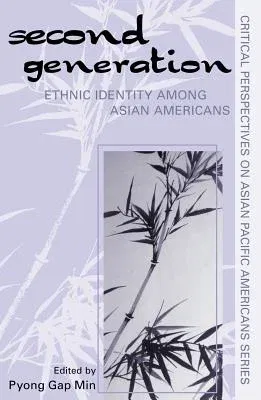Pyong Gap Min
(Author)The Second Generation: Ethnic Identity Among Asian AmericansHardcover, 25 June 2002

Qty
1
Turbo
Ships in 2 - 3 days
In Stock
Free Delivery
Cash on Delivery
15 Days
Free Returns
Secure Checkout

Part of Series
Critical Perspectives on Asian Pacific Americans
Part of Series
Critical Perspectives on Asian Pacific Americans (Hardcover)
Part of Series
Critical Perspectives on Asian Pacific Americans Series
Print Length
280 pages
Language
English
Publisher
Altamira Press
Date Published
25 Jun 2002
ISBN-10
0759101752
ISBN-13
9780759101753
Description
Product Details
Author:
Book Format:
Hardcover
Country of Origin:
US
Date Published:
25 June 2002
Dimensions:
23.88 x
15.14 x
2.29 cm
Genre:
Asian - General
ISBN-10:
0759101752
ISBN-13:
9780759101753
Language:
English
Pages:
280
Publisher:
Series:
Weight:
553.38 gm